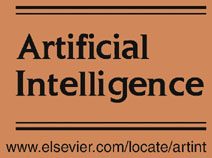Inivited Speakers

|
Gabriele Kern-Isberner TU Dortmund, Germany
Nonmonotonic Logics as a Key to Cognitive LogicsClassical logics like propositional or predicate logic have been considered as the gold standard for rational human reasoning, and hence as a solid, desirable norm on which all human knowledge and decision making should be based, ideally. For instance, Boolean logic was set up as kind of an algebraic framework that should help make rational reasoning computable in an objective way, similar to the arithmetics of numbers. Computer scientists adopted this view to (literally) implement objective knowledge and rational deduction, in particular for AI applications. Psychologists have used classical logics as norms to assess the rationality of human commonsense reasoning. However, both disciplines could not ignore the severe limitations of classical logics, e.g., computational complexity and undecidedness, failures of logic-based AI systems in practice, and lots of logical paradoxes and failures observed in psychological experiments. Many of these problems are caused by the inability of classical logics to deal with uncertainty in an adequate way. Both computer science/AI and psychologiy have used probabilities as a way out of this dilemma, hoping that numbers and the Kolmogoroff axioms can do a better job (somehow). However, psychologists have been observing also lots of paradoxes here (maybe even more). So then, are humans hopelessly irrational? Is human reasoning incompatible with formal, axiomatic logics? In the end, should computer-based knowledge and information processing based on classical logics be considered as superior to human reasoning in terms of objectivity and rationality? Cognitive logics aim at overcoming the limitations of classical logics and resolving the observed paradoxes by proposing logic-based approaches that can model human reasoning consistently and coherently in benchmark examples. The basic idea is to reverse the normative way of assessing human reasoning in terms of logics resp. probabilities, and to use typical human reasoning patterns as norms for assessing the cognitive quality of logics. Cognitive logics explore the broad field of logic-based approaches between the extreme points marked by classical logics and probability theory with the goal to find more suitable logics for AI applications, on the one hand, and to gain more insights into the structures of human rationality, on the other. This talk features conditionals and preferential nonmonotonic reasoning as a powerful framework to explore characteristics of human rational reasoning. We show that interpreting common-sense rules in terms of conditionals and processing them with basic techniques of nonmonotonic logics provides a key to formalize human rationality in a much broader and more adequate way, resolving in particular lots of paradoxes in psychology. |

|
Antonio Rago King's College London, UK
A Little of That Human Touch: Achieving Human-Centric Explainable AI via ArgumentationAs data-driven AI models achieve unprecedented feats across previously unthinkable tasks, the diminishing levels of interpretability of their increasingly complex architectures can often be sidelined in place of performance. If we are to comprehend and trust these AI models as they advance, it seems clear that symbolic methods, given their unparalleled strengths in knowledge representation and reasoning, can play an important role in explaining AI models. In this talk, I discuss some of the ways in which one branch of such methods, computational argumentation, given its human-like nature, can be used to tackle this problem. I first outline a general paradigm for this area of explainable AI, before detailing a prominent methodology therein which we have introduced. I then illustrate how this approach has been put into practice with diverse AI models and types of explanations, before looking ahead to challenges, future work and the outlook in this field. |
Submission Details
There are two types of submissions:
- Full papers. Full papers should be at most
10 pages14 pages including references, figures and appendices, if any. Papers already published or accepted for publication at other conferences are also welcome, provided that the original publication is mentioned in a footnote on the first page and the submission at NMR falls within the authors’ rights. In the same vein, papers under review for other conferences can be submitted with a similar indication on their front page. - Extended Abstracts. Extended abstracts should be at most 3 pages (excluding references and acknowledgements). The abstracts should introduce work that has recently been published or is under review, or ongoing research at an advanced stage. We highly encourage to attach to the submission a preprint/postprint or a technical report. Such extra material will be read at the discretion of the reviewers. Submitting already published material may require a permission by the copyright holder.
Submission will be through the EasyChair conference system. Please submit via Easychair to: https://easychair.org/my/conference?conf=nmr2025

